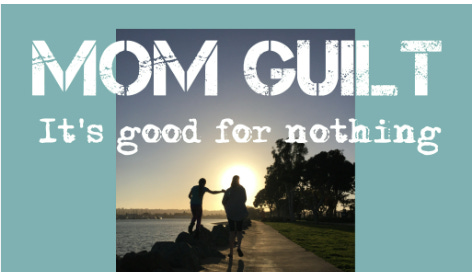
I did not feel guilty when it occurred to me that I was the most likely conduit for some of the obsessive and rigid behaviors that had landed Noah in the hospital. Given how responsible I felt about so much else regarding his mental illness and the toll it took on him and our family, I still find that surprising. And yet, I still don’t feel guilty.
The explanation I’ve settled on, the one that makes sense to me, is that my guilt was the result of behavior I was aware of: I felt guilty because I knew that hadn’t taken Noah’s admission of depression seriously enough back in January, and I hadn’t turned around and brought him back to the hospital when he’d told me on April 20 that he was still planning to kill himself.
About the genetic connection I felt no guilt because — and this part does surprise me — it had never occurred to me that I could be rigid or obsessive or a perfectionist, or that my father and son were.
If there is a silver lining to those horrible three months that Noah spent in the hospital and the months immediately after, when I was terrified to let him out of my sight for fear he would once again try to kill himself, it is this: I learned about myself. Observing Noah, making connections between his behavior and that of my father and myself, I began to recognize patterns that had hurt me in ways I did not understand and may have led me to inadvertently hurt others.
In retrospect, it all seems so obvious.1 No doubt people who knew me had noticed those patterns. Perhaps they’d even tried to point them out to me, but the patterns had never crystallized so clearly as when Noah was ill and during the years since, when he has been healthy.
Under different circumstances, might I have recognized and figured out how to manage these not-entirely-helpful behaviors? Doubtful. By the time Noah wound up in the hospital, I’d gone fifty-seven years without realizing they were a problem. But ultimately, I’ll never know, which is why I don’t spend a lot of time pondering that possibility. It’s not a good use of time — I mean, it’s not as if I can go back and change the past.
What I am left with, then, is this: the cup half full of what I hope is the worst experience I will ever live through is that it provided me insight and an opportunity to grow. And that has made a positive difference in my life and, I hope, in the lives of the people I care most deeply about.
Indeed, mine is the sort of vignette you’d see as an example in the “Hindsight is 20/20” entry in The Compendium of Clichés, if such a compendium existed.




Your reflections have triggered so many insights and memories, some I’ve only picked up fairly recently.
We all own traits, strengths, weaknesses and “green growing edges” we’ll not easily discover without serious, sometimes very painful experiences and subsequent reflections. But reflection, like grief itself, can lead to recovery of sorts,and positive discoveries. As George Eliot said, “It’s never too late to be who we might have been.” Well considered reflections can lead to forgiveness, or at least greater peace of mind. The transformation between who we each were then, vs now, can also be quite remarkable - something to be grateful for. Thank you Debby for illuminating a difficult journey - I wish you, your family, your son, blessings where they will do most good for each, now and always.
Neither guilt nor shame can turn the key to this kind of personal discovery and newfound self-awareness. Finding part of yourself in the observed behaviors of both your father and your son may have been what unlocked this new growth.